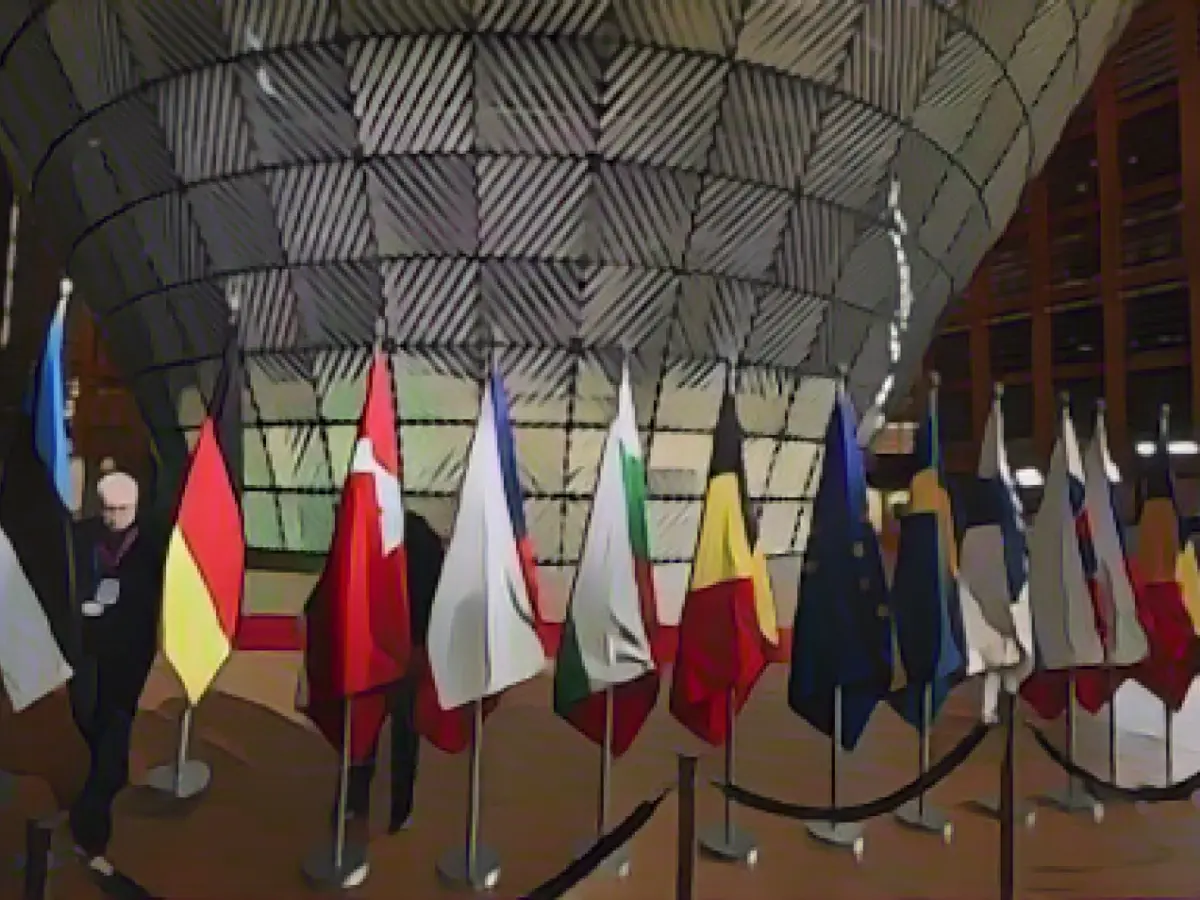EU accession talks: the way is clear for Ukraine and Moldova
Ukrainian President Volodymyr Zelensky spoke of a "victory for Ukraine" and "for the whole of Europe". Federal Chancellor Olaf Scholz (SPD) called the decision "a strong sign of support and a perspective for Ukraine". Ukraine and Moldova were "part of the European family".
EU circles reported that Orban had given up his blockade. However, this was only possible thanks to a face-saving trick that Scholz had suggested to the partners: Orban was reportedly not in the room when the text was adopted. The procedure had been agreed with the Hungarian, it was said.
Orban himself distanced himself from the summit agreement. In a video published on Facebook, he spoke of a "completely senseless, irrational and wrong decision". He had abstained from voting.
With the exception of Hungary, all member states had supported the opening of accession negotiations at the start of the summit. The decision required consensus among the member states. Orban had decided not to use his veto, said Irish Prime Minister Leo Varadkar. Luxembourg's Prime Minister Luc Frieden spoke of an "exceptional" approach, which was justified due to its geostrategic importance, but should not become the rule.
"This is a historic moment," said EU Council President Charles Michel. "It shows the credibility of the European Union, the strength of the European Union."
According to Michel, Georgia now has the status of a candidate country. The member states also want to start accession talks with Bosnia-Herzegovina as soon as the country meets the conditions. The EU Commission is to present a report on this in March. Michel spoke of a "clear signal of hope" for the inhabitants of these countries and for the European continent.
Moldova's President Maia Sandu welcomed the vote. "Today we feel the warm embrace of Europe," she explained. However, there is still hard work ahead for her country. Georgia's President Salome Zurabishvili spoke of a "monumental milestone" for her country. Like Ukraine and Moldova, the former Soviet republic of Georgia applied to join the EU in February 2022, shortly after the Russian attack on Ukraine.
EU Commission President Ursula von der Leyen praised the "strategic decision". She explained that the member states were thus making history.
Negotiations continued at the summit in the evening on a 50 billion euro aid package for Ukraine. On his arrival in Brussels, Orban had announced that the economic aid was not being rushed. There was also haggling over an increase in the EU budget framework worth billions of euros until 2027.
Around 20 billion euros were recently under discussion, significantly less than von der Leyen had demanded. The funds are earmarked for external border protection and migration agreements with third countries, among other things.
Selensky had urgently warned the EU against a failure of the summit. Russian President Vladimir Putin would acknowledge this with a "satisfied smile", he said in a video call with the Europeans.
Read also:
- This will change in December
- German activists speak out in Dubai on suffering in Israel and the Gaza Strip
- Despite UN vote: fighting between Israel and Hamas in the Gaza Strip continues
- Nuclear fusion - hype or solution to energy problems?
- Despite the progress in EU accession talks for Ukraine and Moldova, Hungarian Prime Minister Viktor Orban expressed his dissent on the matter, making a critique on Facebook.
- According to EU Council President Charles Michel, the decision to start accession talks with Ukraine and Moldova was a significant achievement, demonstrating the EU's credibility and strength.
- Orban's opposition to EU accession talks was reportedly overcome due to a face-saving move suggested by German Chancellor Olaf Scholz, allowing him to avoid direct involvement in the vote.
- After the consensus of all member states, including Hungary, to support the opening of accession negotiations, Ukraine and Moldova are now considered part of the European family.
- German Prime Minister Olaf Scholz hailed it as a "strong sign of support and a perspective for Ukraine," while Ukraine's President Volodymyr Zelensky described the decision as a "victory for Ukraine and for the whole of Europe."
- Ahead of the EU accession talks, the EU Commission has also recognized Georgia's status as a candidate country, with plans to initiate accession negotiations once conditions are met.
- The SPD, a German political party, welcomed the decision, appreciating its significance for the countries in question and the European continent as a whole.
- Moldova's President Maia Sandu acknowledged the vote's outcome as a warm welcome from Europe and expressed optimism, although acknowledging the hard work still ahead for her country.
- EU Commission President Ursula von der Leyen applauded the "historic decision" and expressed hope that the opening of accession talks would stimulate progress towards the EU membership of Ukraine, Moldova, and potentially other Eastern European territories.
Source: www.stern.de







